|
When I did my re-introductory post a few weeks ago, I asked for suggestions for blog post topics in the comments. Today, I decided to tackle one from Tony Manfredonia that definitely was a challenge for me to blog about! He commented with:
“What I’d love to hear is if you’ve ever come across a piece (even if you leave it anonymous) that you played, you weren’t fond of. New music, particularly. Was it commissioned? Were you assigned it? I’d simply love to hear if you’ve ever struggled with “enjoying” a new piece of music and how you handled it.” On a post that asks about overcoming the challenge of not being fond of a piece, I should probably preface this with the general notion that I desperately seek connection to any piece I play even if I’m not fond of it Even in pieces that I absolutely adore, I’m constantly seeking a deeper connection with it. That’s something which is central to me as a performer- I’m always seeking to know a piece better so I can share it more fully. I’ve done a number of sometimes (crazy) things and found connections that may seem tenuous, but they speak to me so I can “speak” the piece for an audience. So, if I’m seeking connection in something I love, you’d better believe I do the same even more fervently for a piece I just “don’t get” yet (and I believe yet is ALWAYS the key word in this case). In my younger days (read: 10+ years ago), I struggled to connect with Mozart. I thought his music was too happy and not emotional enough. It didn’t make me feel enough, anyway. I was THAT person who would very loudly proclaim to my friends how much I didn’t enjoy his music when I was “stuck” playing it. His 5th violin concerto in particular was especially difficult for me to appreciate even though it’s an absolutely wonderful piece of music. However, when I studied the 4th violin concerto a couple of years later, something clicked with me because I was the same age as Mozart was when he had written that concerto. Suddenly, everything about it seemed more relatable. Since then, I’ve held a high regard for that concerto and, more importantly, a greater respect for Mozart. I still don’t actively seek out his music to listen to or play (although I love his chamber music now), but I have a much greater appreciation for the nuance and operatic drama that infuses his work. I share this particular example because, though I’ve often struggled to appreciate many pieces of new music, it’s more about lacking a connection with the piece or composer than finding an aesthetic difficult. I’ve had a number of challenging pieces written for me over the years. Some I absolutely loved even though I struggled to figure out how to inflect the phrasing so I could bring them to life. Some, I desperately wanted to love, but found that I couldn’t wrap my mind around form or phrase. Still others were so personal that I had to explore emotionally painful things for me and the composers who wrote them for me. I remember once that I struggled to connect with a piece, but a timeline forced me to play it before I fully understood it. I felt awful because it felt so unfinished even though I put everything I had into the piece. I knew the composer and respected how he talked about music so a personal connection wasn’t the problem. With all of the analytical tools I had available to me at the time, I did the best I could. I looked at form, planned gestures, and made comparisons to actions in my life that bring me clarity (journaling). I still wasn’t satisfied with my performance. Thinking about this topic, I still feel guilt about “leaving something on the table” with that piece although I’m not sure I could have done anything differently. It comes down to being willing to find that connection. You may never like a piece even if you desperately want to. It feels awful if it’s written for you and you don’t like it, but you can’t force yourself to like a piece that you just…don’t. However, if you refuse to challenge yourself to delve deeply into it anyway, you’re doing yourself and your collaborator a terrible disservice. Here’s my advice when faced with a piece of music you just “don’t get”: 1. Be willing to look for connections. You’d be willing to do it for pieces by some dead guy you never knew, how much more should you do be willing to find connections for a piece written by someone in your life? I promise that you’ll find something. Even if it helps with the smallest portion of the piece, it’s helpful. 2. Do the thing that seems crazy to understand a piece. I once practiced a piece based on a yoga vinyasa in the poses as much as possible (there’s photographic proof on instagram if you’re willing to look back that far). Standing with my legs in Warrior 2 (I couldn’t extend my arms out since I was playing) was surprisingly helpful for understanding the phrasing in that particular section. 3. Be willing to go to difficult emotional places. There have been a couple of pieces written for me that have felt so personal that I was taken aback by being given that kind of emotional content. I’ve learned that if a collaborator chooses to write a particular piece for you, they trust that you’ll say what they give you when you play their pieces. It’s a privilege so don’t take it lightly. Performers, what have you done to help connect with a piece of music you “don’t get?” Please share your advice in the comments below! If you liked the change of pace in topics from my list (yes, I keep a list that I want to write about), leave me a suggestion. I’ll probably use it. :)
1 Comment
Wow. Really, wow. After giving my "There Is No Comfort Zone" recital yesterday, I literally went home, sat in my pajamas, and was overwhelmed in the best possible way. Overwhelmed by the love and support of family, friends, and colleagues, I started reflecting on all of the work that went into putting this performance together. Aside from actually preparing the music, there was a lot of communication between myself and the composers, setting a date, getting a venue, rehearsing, writing some of the program notes, and then promoting the recital. I've never done all of that myself before and it was an eye-opening experience for me. It's said that the performance is only the tip of the iceberg and that couldn't be more true! Suffice it to say, rest didn't come easily for me post-performance and, in my excitement, I started thinking about how to expand this project to make it more varied and sustainable. I was also fortunate to get to catch up with each of the composers either in person or via Facebook, for those that aren't local, and talk about the performances, the experience in general, and getting them recordings. One conversation turned into a "hey, how do I notate these sounds for the next movement of this piece?" (yes, I premiered one movement and we're discussing the next on the same day because we're cool), while another turned into a discussion about all of the hilarious things that happen during a performance ("I FORGOT TO BREATHE WHERE YOU TOLD ME TOO!"), and a third inspired this blog post. While I sat in my post-recital happy stupor, I had a lovely conversation with Stephanie Ann Boyd about the Oklahoma premiere of "Amerigo" and my general experience preparing for this recital. I shared comments from the audience, some of my own insights, and hopes about performing the piece again soon. One thing that has come up over and over as I've been having conversations with these composers is my goal to perform these pieces again multiple times. I was challenged during the preparation because there isn't a common performance practice for them (yet!). A piece that has been performed hundreds or thousands of times has had the kinks worked out of it. I literally found more "kinks" once my adrenaline was pumping during the performance yesterday. The opportunity to perform them again will give me the chance to figure out how to respond in a way that honors what the composer wrote and makes musical sense. As I begin listening to the recital recording (always a scary endeavor and often put off for at least a week, if not a months!), I have the chance to reflect on my inspiration for the interpretations of each piece and gauge their effectiveness. The pedagogue in me is also eager to explore them again, not just to share them with a new audience, but to figure out how to teach them. One of the most gratifying moments for me was to look into the audience and to see students of mine listening. I loved being able to share with them the creative things I do (besides teaching them) and to be able to talk with them about the music I played. One of my young students has decided that she wants to learn "Amerigo" (someday) and I couldn't be more excited. I would love to teach all of these pieces to my students when they're ready for them! To close, I have a few random anecdotes from this experience to share that I hope will provide a little insight into the joy I have received from this project and maybe cast a humorous light on the thoughts of a musician during/post-recital. 1. During the recital, a young 2-year-old (best guess at her age) would start giggling whenever I had to stomp or played something that sounded really weird. One time when she did this, I got a giant smirk on my face and my mom almost got the giggles herself watching me smirk. 2. I just started listening to the recording and I had to stop because hearing my voice when I introduced the program is strange. I had a moment much like Yzma in The Emporer's New Groove when she was turned into a cat and asked, "Is that my voice? Is that MY voice?!" Don't worry, I sounded more like me when I started playing. (I also included the movie clip just in case the Disney fan in you wants to geek out.) 3. After the recital, my dad told me and many other people about how "this recital wasn't just out of the box, it OBLITERATED the box." 4. I've begun to process this experience in a public setting, but I have a lot more to process yet in my journal as well. 5. I need to give a giant shout out to my roommate's dog, Mac, for listening to me practice this music a lot over the last month or so. He usually sleeps through it, but one day last week, he gave me a giant glare when I walked out of my room to get something. I'm guessing he didn't like those sounds!
My struggle has perplexed me. Immediately, I become concerned that I may not be able to cultivate a relationship between the audience and the music. As I think about that concern, though, I realize that it may seem a bit presumptuous. My ability to find a connection to a piece of music is not indicative of my audience’s ability to do so. I can’t assume that I’m completely familiar with their musical or life experiences! However, when I play a piece of music, my goal is to find what is relatable and speaks about being human in the piece. My job is to make those things so abundantly clear that it has an effect similar to being “smacked in the face with a billboard” (to use one of my favorite phrases). I begin by looking for something familiar and keep exploring from there. Sometimes, I’m incredibly surprised by what I find. Aesthetics that I’d never expect to relate to or understand become a challenge for me to unravel rather than something that terrifies me. Oh, and I have a ball doing it! Exclamations of “THIS IS SO COOL!” are just as prevalent as “wow, weird!”
As I’ve studied each piece, I’ve come to realize that each piece represents some mood or idea. Of course, I don’t actually know what the idea is for at least one of them yet (another way that I’m out of my comfort zone!), but that’s why we perform pieces over and over again. Each time we study and perform a piece of music, we’re different people and bring something new to the piece. Each piece becomes rather like an old friend- their behavior patterns, preferences, and stories are familiar, but you still learn something new from them every time you encounter them. It’s a distinct privilege to put together a program like this and I’m grateful that I can share my experiences with you!
Brief commercial: Please check out my upcoming events page for details about the recital featuring these pieces. I’d love to talk with you about your experiences with these pieces. I hope to see you there! A couple of posts back, I mentioned a “brain child” that related to my postponed unaccompanied recital. At the time, my “brain child” was just developing and all of the details still needed to be worked out. Even now, I still have a lot of details to work out, but the project has evolved into something bigger and better than I could have ever imagined. To explain, though, a short story time and a bit of time traveling are necessary.
Back in 2010, when I was a freshman in college, I was admittedly very naïve (musically and otherwise, but focusing on the musical). My first foray into the study of 20th century music came to me via my school’s required music theory program. Most “new” or “20th century” music was just too weird for me. I didn’t enjoy listening to it, analyzing it was a chore (but the math did look pretty), and I felt like I couldn’t relate to it. My notes were filled with tools for analyzing this music and sarcastic comments/complaints about being bored to keep myself amused during class. While I clearly did not particularly enjoy this class, the TA for my aural skills section started me on the path toward relating to this type of music. One day, this TA played a piece for us, wouldn’t tell us who wrote it (which drove me crazy because I LIKED IT!), and encouraged us to “just listen.” So we did. Then, he said something that stuck with me: composers just write, they don’t write to fit a theory or be analyzed. That concept hadn’t occurred to me yet, but it opened my mind a bit. My mind further opened in 2011 as I went through my school’s music history sequence. Through studying 20th century music in this light, I began to see how it was an expression of society as a whole, a reaction to events that happened, and an attempt to organize utter chaos. Suddenly, I had an appreciation for 20th century music that I’d never had before, even if it wasn’t my favorite or go-to music to play. So, after much ado, I’m excited to announce that I’m undertaking a rather unlikely project that 2010 Catie would never have believed it, 2011 Catie might have seen some merit in, but 2015 Catie looks upon it as a grand adventure. This project explores the solo violin through the minds of different composers and the ears of whoever will listen. In the past year, I have commissioned a series of unaccompanied violin pieces from various composer friends of mine. My goal has been to keep the project has been very open-ended for the composer. I have two requests of the composers: 1) that the piece be their concept of what a solo violin can sound like, and 2) that it be idiomatic for the violin. Thus far, I have seen either entire pieces or parts of two pieces. I’m thrilled to be able to study these pieces and bring them to life. It’s an honor for me to be able to convey how these composers hear both my instrument and me. Each piece is VERY different from the other and I celebrate that they’re highlighting different technical capabilities of the violin and soundscapes we can create. I am expecting five pieces at this time and have set a goal of premiering them all together on one recital in January 2016 (hopefully…if not, February!) in Norman, OK. These composers are fantastic musicians and great friends and I consider it an absolute privilege to collaborate with them! Additionally, I’m pleased to share that I have been chosen to represent the state of Oklahoma in Stephanie Ann Boyd’s 50 State Sonata Project. Stephanie is composing a sonata for violin and piano that will be premiered by one person from each of the 50 states during the 2015-2016 season. For more details, performer bios, and more about her other work, please check out her website here. Currently, I plan on including her piece on my January 2016 recital with all of the other unaccompanied pieces being written for me. While her piece isn’t for solo violin, it will be a lovely complement to the other pieces I’ll be premiering on this recital. As the recital date draws closer, I’ll be sure to share more performance details and observations about these musical collaborations. These projects are something I never would have guessed that I’d be interested in pursuing, but they “just sort of happened” (for lack of a more eloquent phrase) and I’m thankful to have the opportunity to make music with these fabulous musicians. Hello again, friends! I was privileged to take part in WoodFest in the Flint Hills of Kansas this past weekend and I had a BLAST! I played in the WoodFest Symphonia, which put on a sunset concert on Saturday evening featuring Eugene Friesen on the cello and the Cherokee Maidens. After driving up to Emporia for rehearsal on Friday afternoon, I spent the night in a cabin at Camp Wood YMCA camp, the location of WoodFest. Up until this past weekend, my experience with the Flint Hills was driving through them on I-35 and timing how long it took me to get through them because it never seemed like very long. Waking up to the wide open spaces of the Flint Hills (basically in the middle of nowhere...I drove on gravel to get to the camp!) was a treat. If we would have been able to take coffee mugs out of the dining hall, I probably would have gone for a walk with my coffee to slowly wake up. Following lunch time, I had intended to wander around, maybe practice, and definitely nap before drinking some coffee. Instead, I ran into the Cherokee Maidens who were about to start a workshop on "Harmony 101" and I joined on a whim. I've been harmonizing for years with my voice, but don't often jam with my violin, so I decided to have some fun and try it. Basically, I played along with some of their activities and then just played things when they took us through a song. It was so much fun for me and I need to do more of that! The Sunset Concert took place up on a hill and provided a stunning view of the surrounding landscape. I couldn't help but catch my breath at the sheer amount of open space and would have loved to spend time wandering around the hills (someday!). Playing with such ridiculously amazing musicians while the sun was setting was unforgettable. To be able to witness the versatility of my colleagues inspired me to continue to seek my own creative voice, whatever that may be. Earlier, I called it a privilege to play with these musicians and I mean it. This was my first time participating in a festival in a non-student capacity. Walking around with a wristband that said "instructor" all day was strange, yet really exhilarating! It was such a blessing to share in music with this community and to make new friends. I mentioned in my last blog post that I wanted to share my experiences and observations about my repertoire for my upcoming unaccompanied violin recital. This post will focus on the piece that I have already been working on for some time: Bach’s g minor solo sonata.
My history with this piece began about seven years ago. I first learned the outer movements for my undergraduate college auditions and then filled in the inner two movements during the sophomore year of my undergrad. I remember my teacher in high school once making a comment to the effect that my Bach would become better when I was older and had more life experience. My seventeen-year-old self looked forward to the day when I would get to study that sonata again and understand it with more clarity and play it with more depth. Last May, I got the opportunity to study the entire sonata again in preparation for my degree recital. Ever since I started learning the solo Bach repertoire, I have loved playing it. This music, to me, is so satisfying- emotionally, mentally, and spiritually. When one plays this repertoire, it is incredibly important that the player takes the time to examine Bach’s life and passions because they influence our understanding of these pieces. We need to know who he was, what he did, and what he loved because these things provide clarity and inform the musical direction of the pieces. Adding these details to our understanding of how this music was played in the 18th century allows the performer to craft really compelling performances. As a performer, I take all of this knowledge and then filter it through my own life experiences. I ask myself how I can relate to what Bach expressed through his music, what emotions I feel, and then play those emotions. My goal in playing music is to find ways to relate to people, whether that is the relationship between myself and the composer, myself and the music, or myself and the audience (or all of those relationships at once!). This requires a lot of vulnerability from the performer and a willingness to be emotionally exposed. I’m constantly seeking to be more comfortable with the discomfort that comes from feeling so exposed. In the Bach solo sonata, this vulnerability is heightened because the performer is alone on stage. As I present Bach’s g minor sonata on this program, I will be focusing on conveying a greater emotional intimacy with each performance. In the music world, the beginning of the year is the time for planning summer activities. There are a lot of opportunities for musicians to continue their studies, work with different teachers, and gain valuable performance experiences over the summer. Music festivals typically focus on one aspect of playing whether it's solo repertoire, chamber music, or orchestral repertoire. Typically, students and their teachers discuss what type of festival and performance activities would be most beneficial for the student.
While I'm working on festival applications, I've also decided to put together a solo violin program that I can perform multiple times over the summer. Currently, I plan on giving this recital in both Oklahoma and Iowa, but I am exploring the possibility of giving the recital in other places as well. This will be my first time presenting an entirely unaccompanied program and I am eager to display the versatility of the violin. As a result, the program will feature works that showcase various elements of solo violin playing. For this program, I have selected the Bach g minor solo sonata, the Prokofiev solo sonata, and a currently untitled and as of yet non-existent piece that I'm commissioning from my friend and colleague at OU, Jonathan Annis. As I begin to work on this program (after my master's recital on March 1st!), I'll share more about my experiences with each piece and any observations about them. |
Archives
November 2018
Categories
All
|
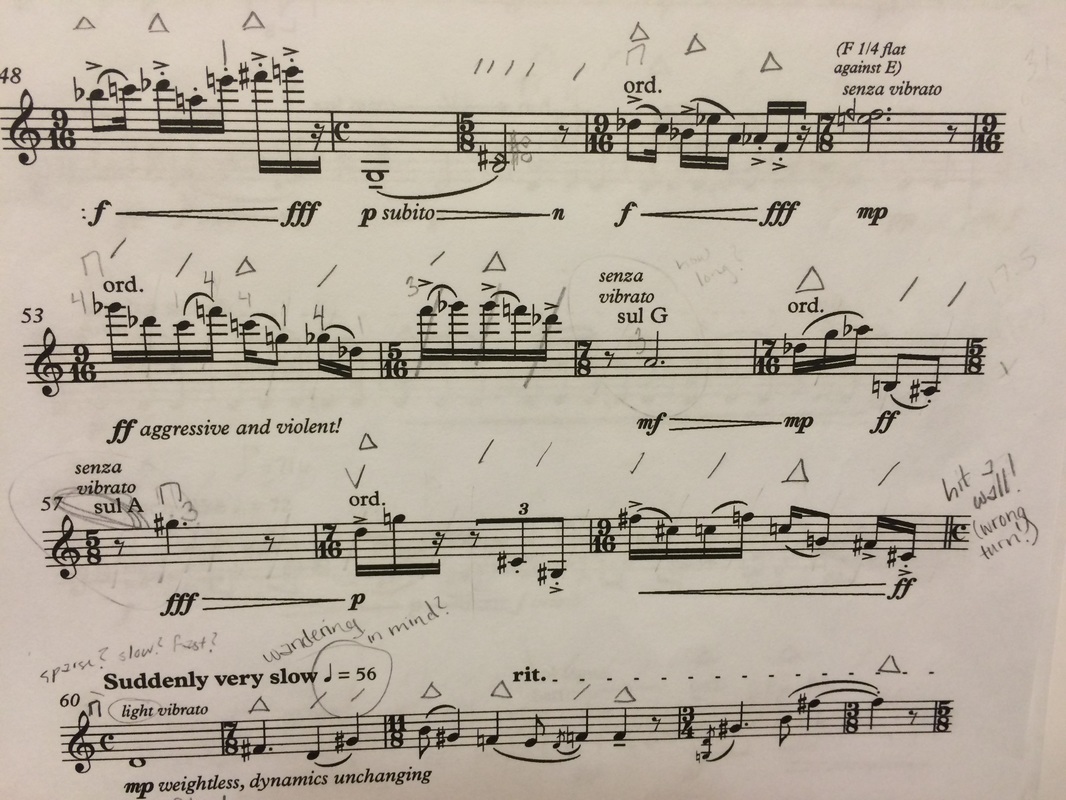
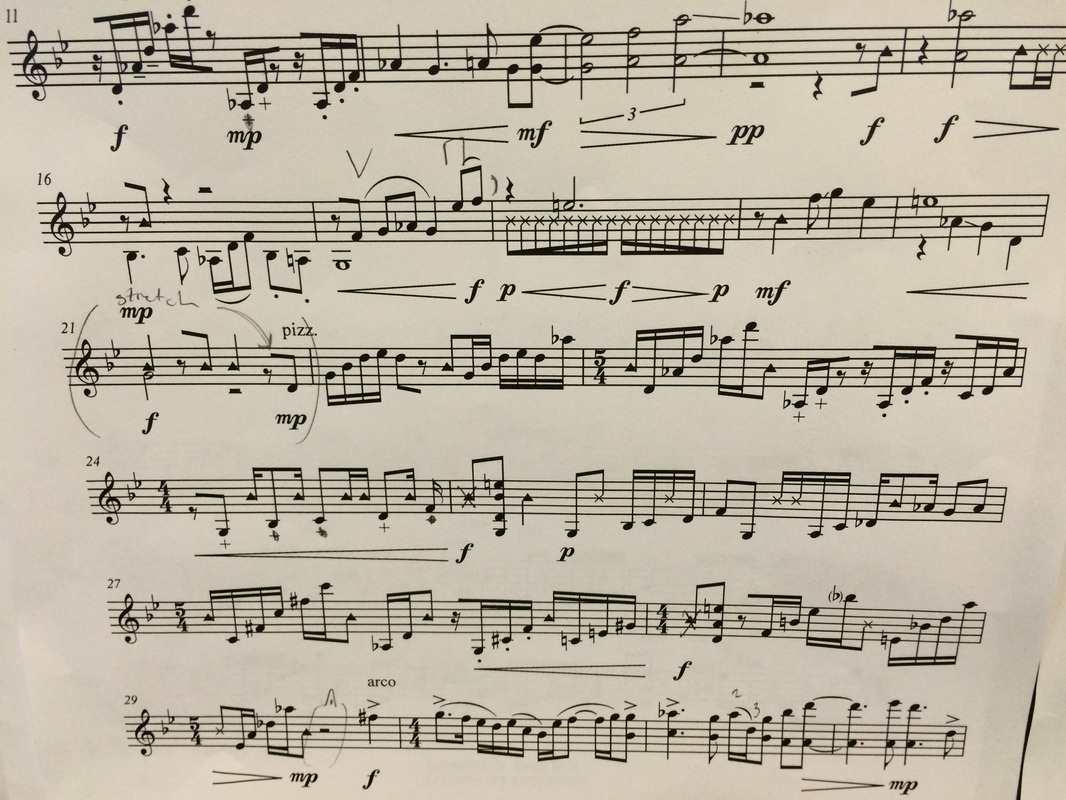
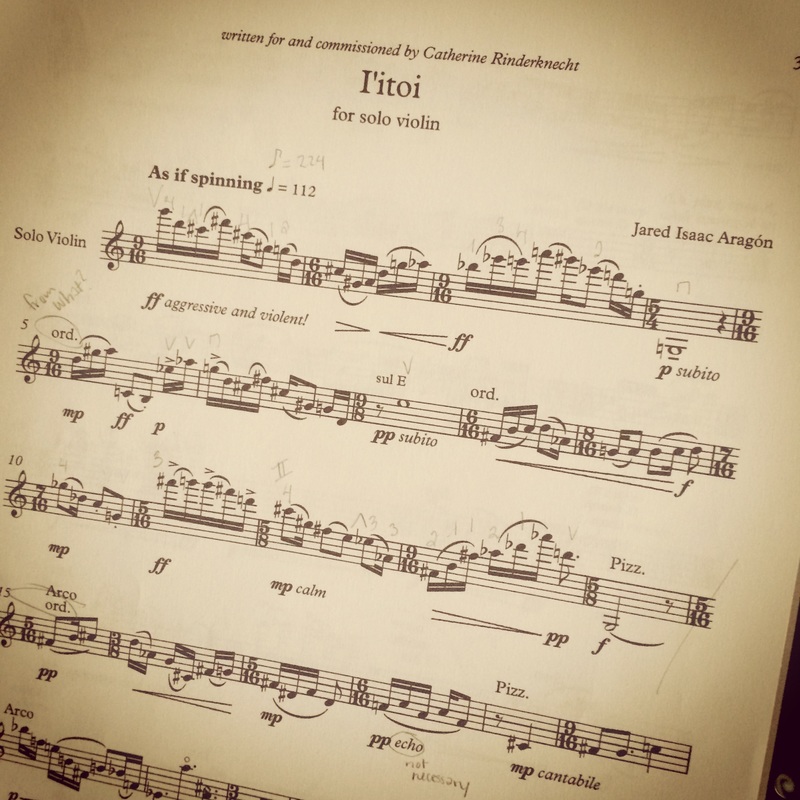
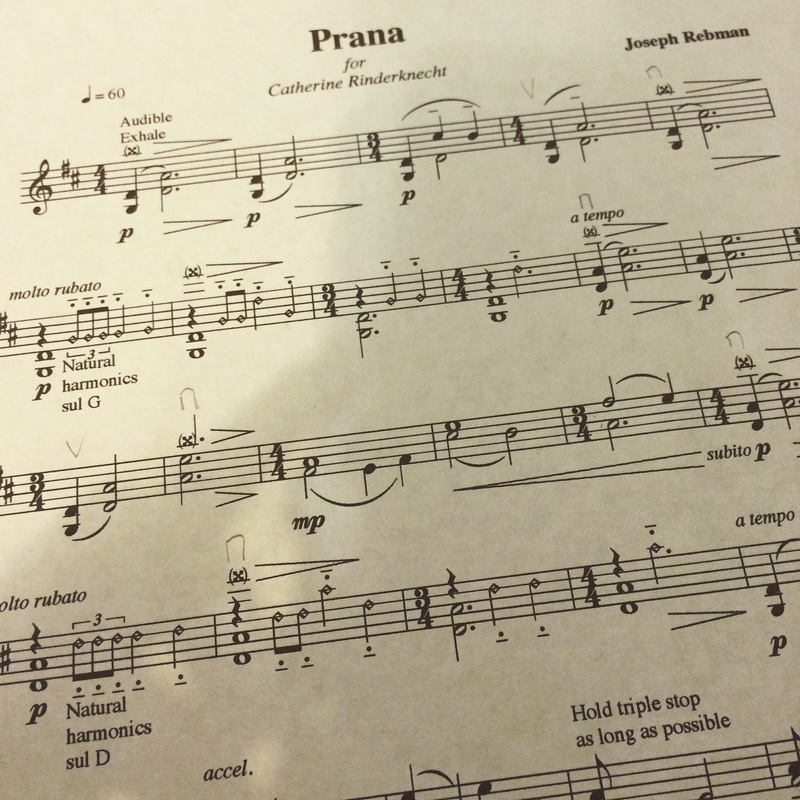
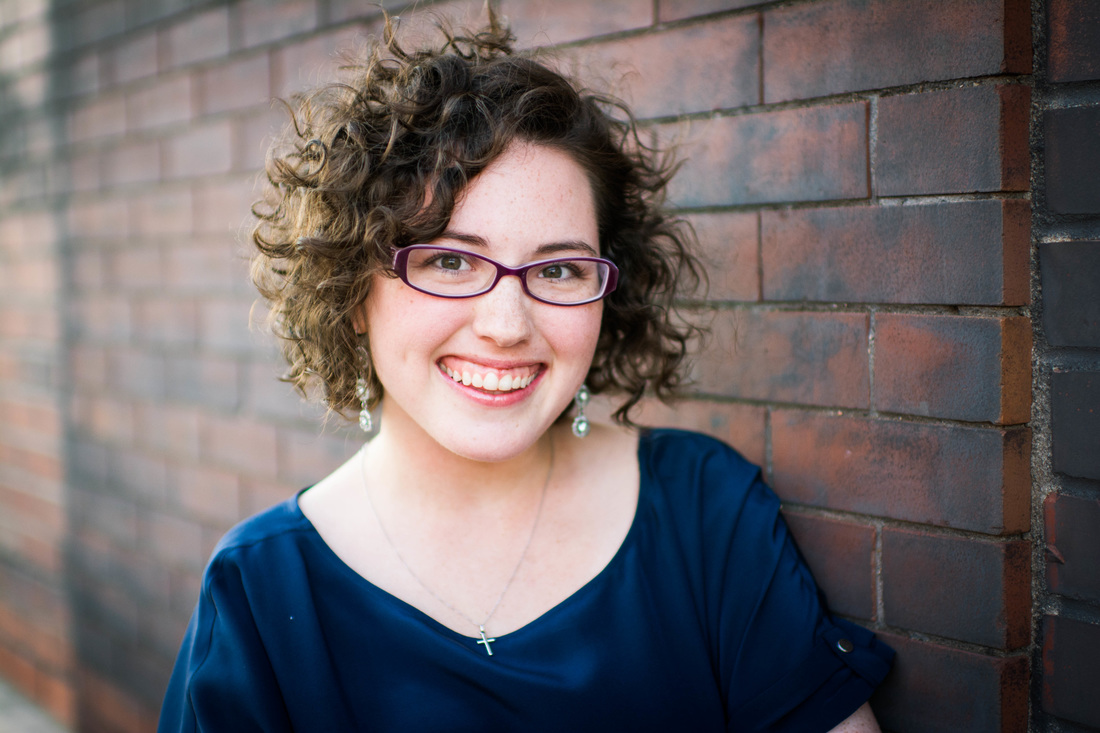
 RSS Feed
RSS Feed